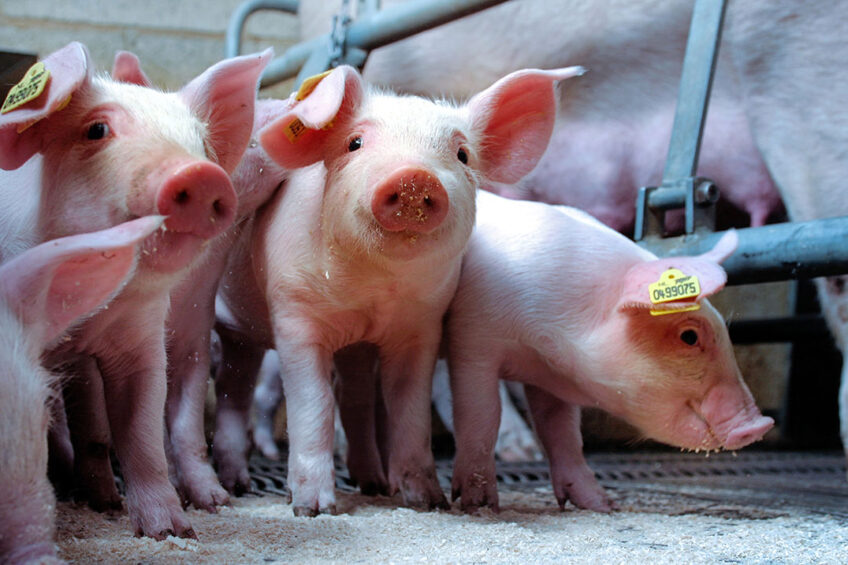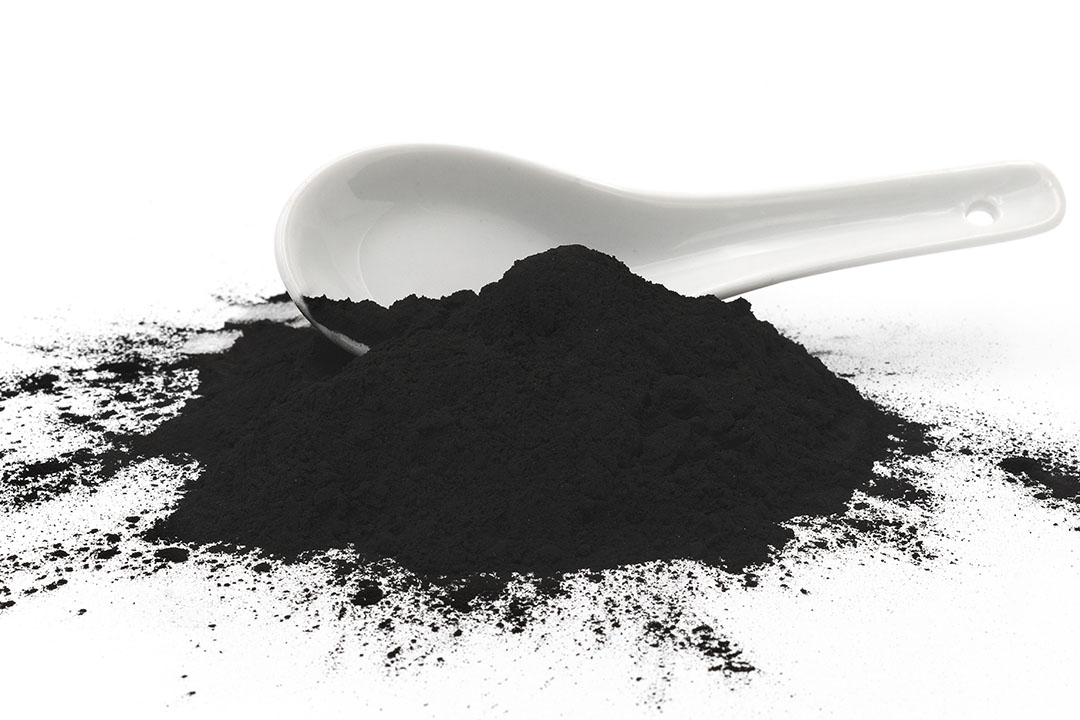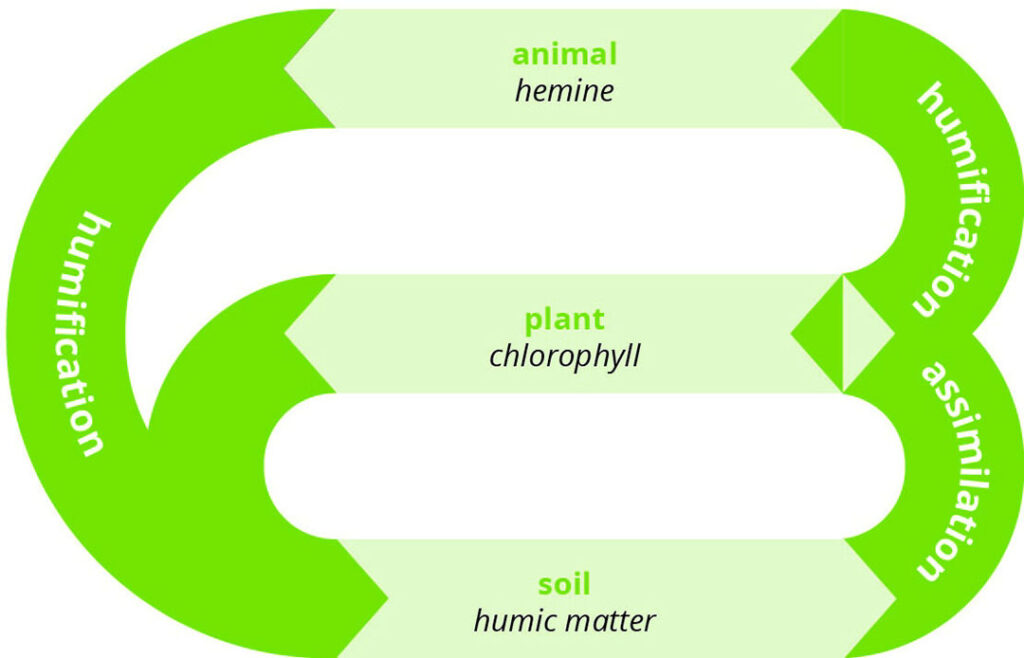Humic acids: Nature’s nutritional secret

The European Commission’s Green Deal is a huge challenge for the feed industry. At the centre of the strategy is the ‘farm to fork’ approach, which addresses all parts of the food chain to improve the safety and sustainability of food production. This article highlights the potential of humic acids as an important brick in the wall to build the house of the Green Deal.
Humic acids have been known for hundreds of years to be a valuable natural product for healthy human and animal nutrition. Derived from natural sources such as soil, peat, coal, or leonardite, humic acids represent the pinnacle of organic compounds. As a dark-coloured powder sourced from various natural sources, humic acids offer a promising avenue for improving feed efficiency, supporting animal health and welfare, and mitigating environmental impact.
Humic acids are part of a group of naturally occurring substances known as humic substances, which also include fulvic acids and humins. They are organic compounds that are commonly found in soil, peat, coal or leonardite. Humic acids are formed through the decomposition of organic matter over extended periods of time by microorganisms.

In fact, the full cycle of this process can be addressed by feeding humic acids, both to the soil, plants and the animal itself. First, we can improve the animal’s nutrition. Finally, they go via the faeces back into the soil where they can improve soil and plant health i.e. by ensuring that the plants are able to retain sufficient water during hot summers. In this context, humic acids can have an influence on agriculture to create a more sustainable future. As an earth element, humic acids are of natural origin and can improve feed and food safety through targeted utilisation.
Humic acids to support health and welfare
In livestock humic acids can support animal health and welfare. Animals fed with humic acids displayed calmer behaviour than animals that did not receive humic acids. Humic acids are thus believed to support animal welfare. Together with enhanced animal welfare, the overall health of the animal will also be maintained.
Humic acids support the natural detoxifying function of the animal and have a beneficial effect on gut health. With regards to gut health, good gut integrity and ecology are maintained. As a consequence, adding humic acids to the diet will increase nutrient absorption, nutrient utilisation, hence reduced feed conversion, and better feed efficiency. This means that animals can increase their growth and performance while needing less feed. Additionally, humic acids support the natural intestinal function and digestion and have a positive influence on faeces consistency.
Figure 1 – This figure shows an overview of how humic acids are formed.

Reducing emissions
Fulvic acids as examples of humic substances were already mentioned in the All About Feed magazine in 03/23. As reported there, fulvic acids can have an influence on ammonia emissions. This effect has also been proven for humic acids. In a decade of experience, we have received feedback from farmers and the feed industry about this positive effect when using humic acids in feed. Farmers reported a reduction in the unpleasant smell of ammonia in the pens of the animals.
The dark coloured product Humigut, which combines several benefits in terms of agricultural sustainability, has recently been launched within the Denkavit Ingredients portfolio. Together with GITES GmbH, who have 60 years of research and a decade of application experience. It combines the world´s most powerful humic acids which are carefully selected and extensively analysed. Even though humic acids are a natural product and therefore subject to variation, this product is processed in such a way that consistent results can be achieved with each batch again and again. Only a small percentage of the raw materials meet the high requirements and make it into a standardised product. The wide range of functions and the high quality standards make the product a standardised solution for strengthening the intestinal function but it has also many other benefits. Not only do humic acids have a wide variety of benefits as explained above, they are also widely applicable. All animal species could obtain benefits, from weaned piglets to dairy cows. Even humans might benefit from humic acids. For that reason, this product offers farmers a reliable solution to support animal health, contribute to agricultural sustainability, and promote more responsible farming practices.
In conclusion, the introduction of humic acids marks a significant advancement in animal feed with its origins deeply rooted in natural processes and bolstered by decades of scientific expertise and practical experience. By improving feed efficiency, supporting animal health and welfare, and mitigating environmental impact, humic acids pave the way for a more resilient and responsible approach to livestock farming. Humic acids can make a significant contribution to the Green Deal’s major goals of healthy and environmentally friendly food by achieving a more sustainable and efficient livestock industry through the use of natural feed materials.


